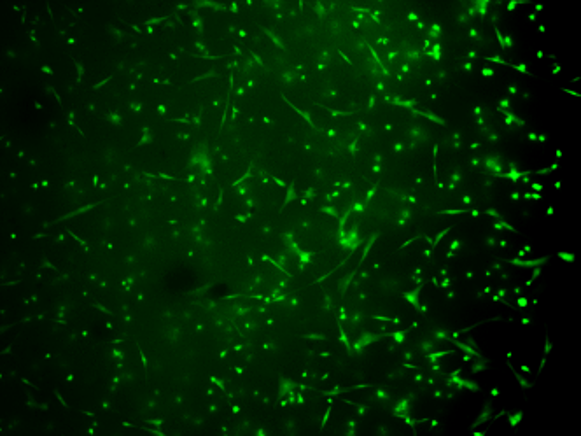TissueFab® bioink Bone UV/365 nm is specifically crafted to enhance the osteogenic differentiation of stem cells. It is structured around a hydrogel system composed of Gelatin methacryloyl (GelMA) and Hydroxyapatite (HAp).
HAp is a highly crystalline calcium phosphate variant that exhibits remarkable biocompatibility, along with osteoinductive and osteoconductive properties, owing to its chemical similarity to the mineralized phase of bone.
This makes it particularly suitable for bone regeneration. The use of HAp in hydrogels has been explored in the scientific literature to showcase their compatibility with various additive manufacturing techniques. When applied in bioink formulations, HAp-containing hydrogels have superior osteogenic characteristics, especially in 3D printing cell-laden structures.

Image Credit: Merck
Properties
Source: Merck
| . |
. |
| Form |
Viscous liquid |
| Quality Level |
100 |
| Impurities |
<5 CFU/g Bioburden (Total Aerobic)
<5 CFU/g Endotoxin (fungal)
<50 EU/mL Endotoxin |
| Color |
White |
| pH |
6.5-7.5 |
| Viscosity |
5-50 cP(37 °C) |
| Application(s) |
3D bioprinting |
Application
TissueFab® bioink Bone UV/365 nm, low endotoxin is a pre-made bioink formulated for optimal cell viability, osteoinduction, and printing accuracy. Designed for extrusion-based 3D bioprinting, it can be crosslinked using 405 nm visible light. GelMA-Bone bioinks are compatible with most extrusion-based bioprinters, biodegradable, and suitable for human mesenchymal stem cells (hMSCs) and osteogenic cell types.
This bioink facilitates the precise creation of osteogenic 3D cell models and tissue constructs, supporting research in 3D cell biology, tissue engineering, in vitro tissue models, and regenerative medicine.